- Browse
- Chromatin Immunoprecipitation
Results for "chromatin+immunoprecipitation"
 Status: Free TrialFree TrialJ
Status: Free TrialFree TrialJJohns Hopkins University
Skills you'll gain: Bioinformatics, Unix Commands, Biostatistics, Exploratory Data Analysis, Statistical Analysis, Unix, Data Science, Data Management, Statistical Methods, Command-Line Interface, Statistical Hypothesis Testing, Linux Commands, Data Analysis Software, Data Quality, Data Structures, Data Analysis, Computer Science, Molecular Biology, R Programming, Python Programming
4.5·Rating, 4.5 out of 5 stars6.8K reviewsIntermediate · Specialization · 3 - 6 Months
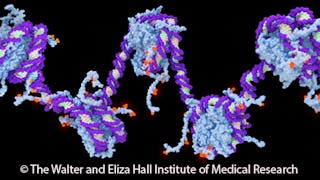 Status: PreviewPreviewT
Status: PreviewPreviewTThe University of Melbourne
Skills you'll gain: Molecular Biology, Life Sciences, Oncology, Environment, Cell Biology, Biology, Medical Science and Research, Research Design, Nutrition and Diet
4.8·Rating, 4.8 out of 5 stars840 reviewsMixed · Course · 1 - 3 Months
 Status: Free TrialFree TrialJ
Status: Free TrialFree TrialJJohns Hopkins University
Skills you'll gain: Oncology, Medical Imaging, Patient Education And Counseling, Diagnostic Radiology, Radiation Therapy, Molecular Biology, Diagnostic Tests, Clinical Trials, Pain Management, Preventative Care, Treatment Planning, Urology, Patient Treatment, Immunology, Epidemiology, Surgery, Cell Biology, Care Management, Biology, Pathology
4.8·Rating, 4.8 out of 5 stars9.8K reviewsBeginner · Specialization · 3 - 6 Months
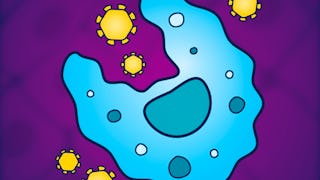 Status: Free TrialFree TrialI
Status: Free TrialFree TrialIImperial College London
Skills you'll gain: Immunology, Infectious Diseases, Hematology, Physiology, Oncology, Microbiology, Molecular, Cellular, and Microbiology, Epidemiology, Internal Medicine, Chronic Diseases, Public Health and Disease Prevention, Geriatrics, Pathology, Pulmonology, Environment, Pharmacotherapy, Biology, Public Health, Molecular Biology, Cell Biology
4.8·Rating, 4.8 out of 5 stars380 reviewsIntermediate · Specialization · 3 - 6 Months
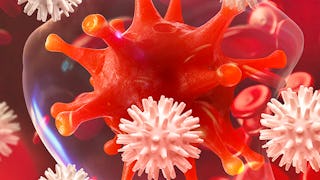 Status: Free TrialFree TrialR
Status: Free TrialFree TrialRRice University
Skills you'll gain: Immunology, Public Health, Infectious Diseases, Anatomy, Preventative Care, Molecular Biology, Chronic Diseases, Physiology, Hematology, Medical Terminology, Oncology, Microbiology, Cell Biology, Biochemistry, Pathology, Drug Development, Diagnostic Tests, Pharmacology, Biology
4.7·Rating, 4.7 out of 5 stars2.2K reviewsIntermediate · Specialization · 3 - 6 Months
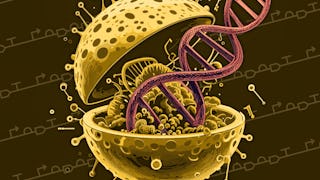 Status: Free TrialFree TrialU
Status: Free TrialFree TrialUUniversity of Colorado Boulder
Skills you'll gain: Biological Engineering, Markov Model, Molecular Biology, Biotechnology, Bioinformatics, Simulation and Simulation Software, Mathematical Modeling, Engineering Analysis, Mathematical Software, Electrical Engineering, Engineering Design Process, Simulations, Biochemistry, Computational Thinking, Failure Analysis, Differential Equations, Cell Biology, Hazard Analysis, Technical Design, Chemical Engineering
Build toward a degree
4.5·Rating, 4.5 out of 5 stars33 reviewsIntermediate · Specialization · 3 - 6 Months
What brings you to Coursera today?
 Status: PreviewPreviewD
Status: PreviewPreviewDDuke University
Skills you'll gain: Molecular Biology, Biology, Biostatistics, Biotechnology, Environmental Science, Scientific Methods, Mathematical Modeling
4.8·Rating, 4.8 out of 5 stars1.9K reviewsMixed · Course · 1 - 3 Months
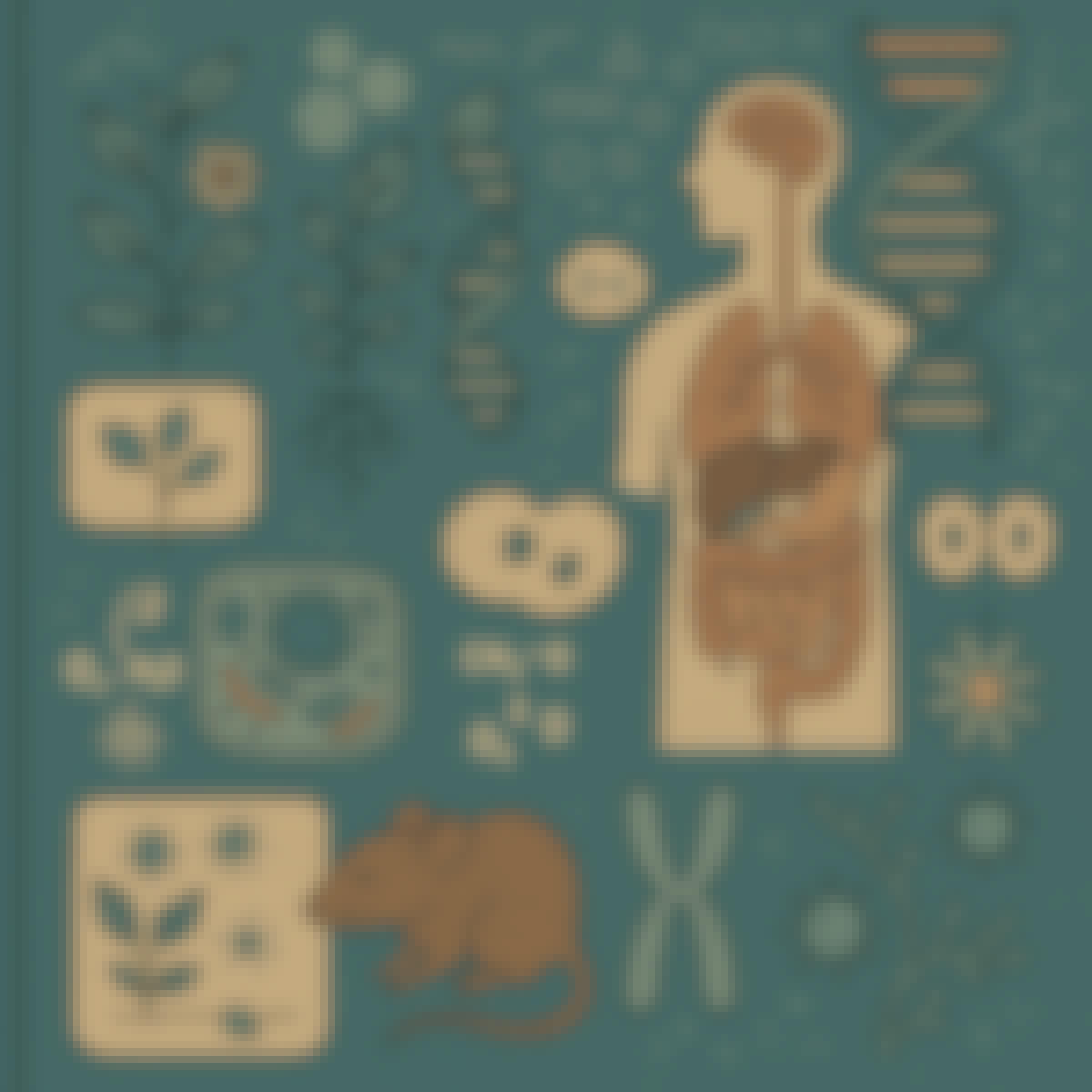 Status: NewNewB
Status: NewNewBBirla Institute of Technology & Science, Pilani
Skills you'll gain: Scientific Methods, Physiology, Biotechnology, Biology, Cell Biology, Immunology, Anatomy, Molecular Biology, Biochemistry, Respiration, Endocrinology, Neurology, Oncology
Beginner · Course · 1 - 3 Months
 Status: NewNewStatus: PreviewPreviewU
Status: NewNewStatus: PreviewPreviewUUniversity of Cambridge
Skills you'll gain: Criminal Investigation and Forensics, Investigation, Laboratory Testing, Statistical Analysis, Molecular Biology, Specimen Collection, Scientific Methods, Medical Science and Research, General Science and Research, Data Collection, Case Studies, Biology, Ethical Standards And Conduct
4.7·Rating, 4.7 out of 5 stars6 reviewsBeginner · Course · 1 - 3 Months
 Status: Free TrialFree TrialI
Status: Free TrialFree TrialIIcahn School of Medicine at Mount Sinai
Skills you'll gain: Matlab, Bioinformatics, Quantitative Research, Unsupervised Learning, Data Synthesis, Research, Mathematical Modeling, Molecular Biology, Pharmacology, Science and Research, Cell Biology, Biotechnology, Biomedical Technology, Scientific Methods, Physiology, Differential Equations, Computational Logic, Biochemistry, Network Analysis, Biology
4.4·Rating, 4.4 out of 5 stars986 reviewsIntermediate · Specialization · 3 - 6 Months
 Status: Free TrialFree TrialI
Status: Free TrialFree TrialIImperial College London
Skills you'll gain: Immunology, Infectious Diseases, Oncology, Internal Medicine, Pathology, Pharmacotherapy, Molecular, Cellular, and Microbiology, Chronic Diseases
4.7·Rating, 4.7 out of 5 stars123 reviewsIntermediate · Course · 1 - 4 Weeks
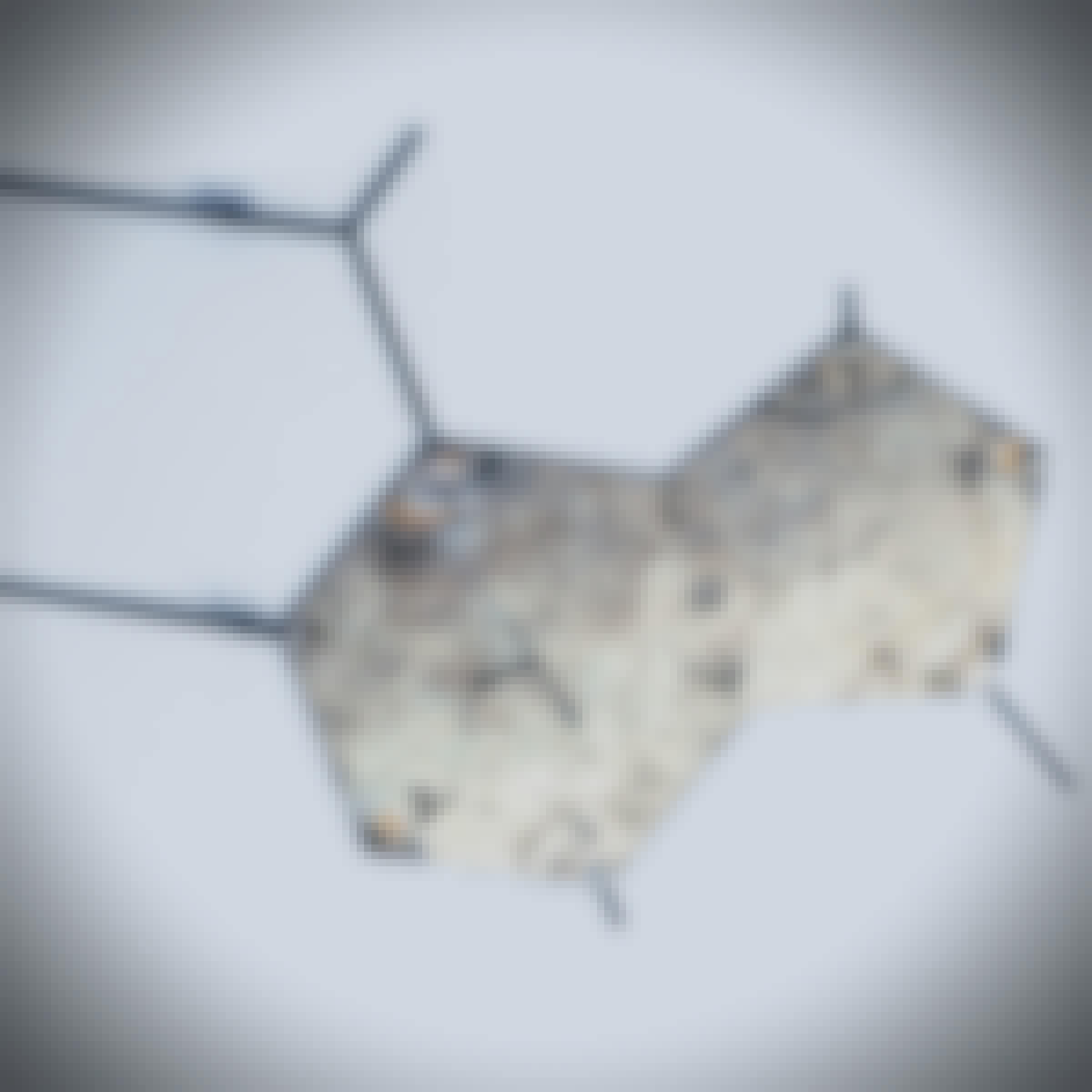 Status: PreviewPreviewU
Status: PreviewPreviewUUniversity of Geneva
Skills you'll gain: Molecular Biology, Biochemistry, Biology, Life Sciences, Laboratory Research, Microbiology, Experimentation
4.6·Rating, 4.6 out of 5 stars246 reviewsMixed · Course · 1 - 3 Months
In summary, here are 10 of our most popular chromatin+immunoprecipitation courses
- Genomic Data Science: Johns Hopkins University
- Epigenetic Control of Gene Expression: The University of Melbourne
- Cancer Biology: Johns Hopkins University
- Immunology: The Immune System and its Failures: Imperial College London
- Fundamentals of Immunology: Rice University
- Engineering Genetic Circuits: University of Colorado Boulder
- Introduction to Genetics and Evolution: Duke University
- General Biology: Birla Institute of Technology & Science, Pilani
- Forensic Science: DNA Analysis: University of Cambridge
- Systems Biology and Biotechnology: Icahn School of Medicine at Mount Sinai










